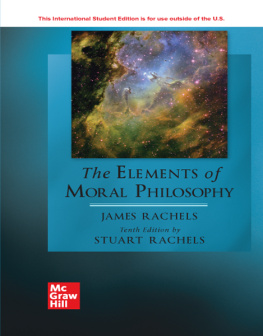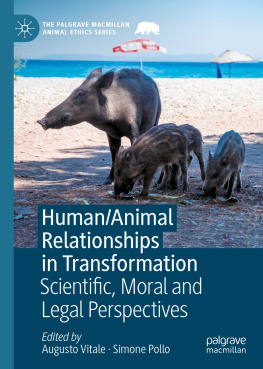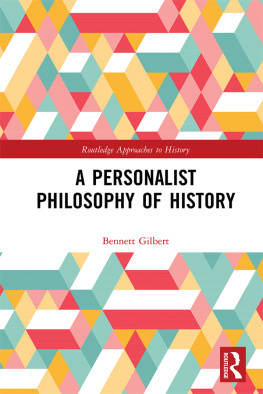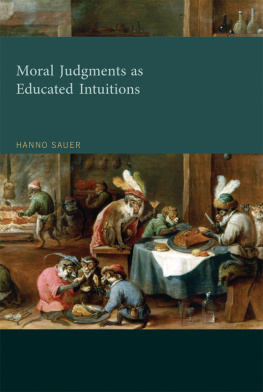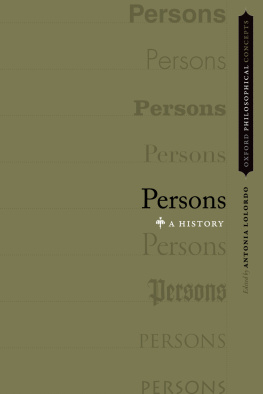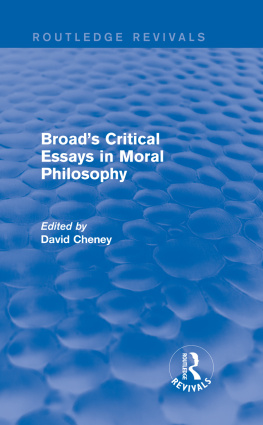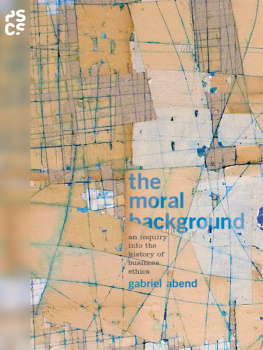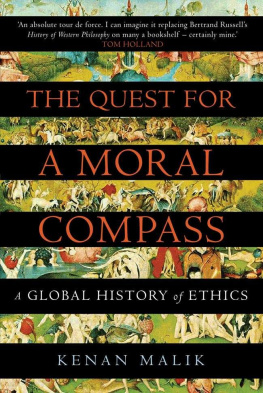Moral Concepts and Their History
This edited volume is devoted to the history of moral concepts, including shame, contempt, happiness, conscience, cleanliness and the brick.
The chapters in this book are written from the diverse perspectives of the philosopher, theologian, linguist and historian of ideas. However, they are united in the conviction that moral concepts are illuminated by being treated historically; or even, more strongly, that we cannot fully understand what they are now without knowing the history of how they have come to be. Viewed in this way, the history of moral concepts is a crucial preliminary to moral self-understanding, as well as an interesting enquiry in its own right.
The chapters in this book were originally published as a special issue of the History of European Ideas.
Edward Skidelsky is Lecturer in Philosophy at the University of Exeter, UK.
First published 2022
by Routledge
2 Park Square, Milton Park, Abingdon, Oxon, OX14 4RN
and by Routledge
605 Third Avenue, New York, NY 10158
Routledge is an imprint of the Taylor & Francis Group, an informa business
2022 Taylor & Francis
2018 Ute Frevert. Originally published as Open Access.
With the exception of , please see the chapters Open Access footnote.
Trademark notice: Product or corporate names may be trademarks or registered trademarks, and are used only for identification and explanation without intent to infringe.
British Library Cataloguing-in-Publication Data
A catalogue record for this book is available from the British Library
ISBN13: 978-0-367-76476-0 (hbk)
ISBN13: 978-0-367-76480-7 (pbk)
ISBN13: 978-1-003-16712-9 (ebk)
DOI: 10.4324/9781003167129
Typeset in Minion Pro
by codeMantra
Publishers Note
The publisher accepts responsibility for any inconsistencies that may have arisen during the conversion of this book from journal articles to book chapters, namely the inclusion of journal terminology.
Disclaimer
Every effort has been made to contact copyright holders for their permission to reprint material in this book. The publishers would be grateful to hear from any copyright holder who is not here acknowledged and will undertake to rectify any errors or omissions in future editions of this book.
Citation Information
The following chapters were originally published in the History of European Ideas, volume 45, issue 3 (2019). When citing this material, please use the original page numbering for each article, as follows:
- Hans in Luck or the moral economy of happiness in the modern age
- Ute Frevert
- History of European Ideas, volume 45, issue 3 (2019) pp. 363376
Chapter 2
- What moral philosophers can learn from the history of moral concepts
- Edward Skidelsky
- History of European Ideas, volume 45, issue 3 (2019) pp. 311321
Chapter 3
- Conscience: what is its history and does it have a future?
- John Cottingham
- History of European Ideas, volume 45, issue 3 (2019) pp. 338345
Chapter 4
- Whats wrong with subjective rights?
- Nigel Biggar
- History of European Ideas, volume 45, issue 3 (2019) pp. 399409
Chapter 5
- How contempt became a passion
- Ross Carroll
- History of European Ideas, volume 45, issue 3 (2019) pp. 346362
Chapter 6
- Shame in early modern thought: from sin to sociability
- Hannah Dawson
- History of European Ideas, volume 45, issue 3 (2019) pp. 377398
Chapter 7
- Next to godliness? exploring cleanliness in peace and war
- Lynda Mugglestone
- History of European Ideas, volume 45, issue 3 (2019) pp. 322337
Chapter 8
- Youre a brick: colloquialism and the history of moral concepts
- Nikhil Krishnan
- History of European Ideas, volume 45, issue 3 (2019) pp. 410420
For any permission-related enquiries please visit: http://www.tandfonline.com/page/help/permissions
Notes on Contributors
- Nigel Biggar Christ Church, University of Oxford, UK.
- Ross Carroll Department of Politics, University of Exeter, UK.
- John Cottingham Department of Humanities, University of Roehampton, London, UK.
- Hannah Dawson Department of History, Kings College, London, UK.
- Ute Frevert Max Planck Institute for Human Development, Berlin, Germany.
- Nikhil Krishnan Faculty of Philosophy, University of Cambridge, UK.
- Lynda Mugglestone Faculty of English, University of Oxford, UK.
- Edward Skidelsky Department of Philosophy, University of Exeter, UK.
Introduction
Edward Skidelsky
The essays in this volume belong to many intellectual disciplines: moral philosophy, intellectual history, theology and historical linguistics. They are gathered together in the conviction that these disciplines have much to learn from one another, and in particular that moral philosophy, my own discipline, has much to learn from all the others.
This is not a currently fashionable conviction. A colleague of mine, a distinguished historian of the Scottish Enlightenment, once put it to me that the history of philosophy has no more relation to philosophy than the history of art does to art. If that is true, it only shows what a dire state philosophy and art are both in. Cezanne sought to redo Poussin in front of nature. Adam Smith aspired to be the Newton of the moral world. Both men saw themselves as participants in a conversation extending over centuries. Today, artists and philosophers take shorter views. The former wish only to express their own ideas, which are in fact usually ideas they have picked up at art school tattered hand-me-downs of second-rate French theorists. And the latter spend their time constructing endlessly complicated solutions to problems whose existence and the importance they take entirely for granted. When experience is not retained, infancy is perpetual, wrote Santayana. Some take this condition for freedom. I see it rather as inarticulacy and confusion.
Most analytic moral philosophers share the prejudice against history common to analytic philosophers in general. They treat the concepts they analyse as abstract universals, with no history, or else they bracket out this history as philosophically irrelevant. Both attitudes are misplaced. Our concepts of justice, courage, prudence etc. are all products of specific and contingent evolution, apart from which they are not fully intelligible. Conceptual analysis implies historical analysis.
The following essays all illustrate in different ways the importance of the history of moral philosophy to moral philosophy itself. The first two, by historian Ute Frevert and myself, deal with happiness, a central concept of Enlightenment moral philosophy and now the topic of a new science bringing together psychologists, sociologists and economists. Practitioners of this science typically assume that happiness is a universal datum of human experience, which can be measured and compared across populations. In fact, as both I and Ute Frevert strive to show, the meaning of happiness has changed considerably over time: what was once an objectively desirable condition of being is now an inner state of pleasure or contentment. The causes of this change are hard to determine. My own account focuses on the new concept of mind associated with Descartes and Locke. Prof. Frevert lays more stress on the social project of happiness maximisation, which she traces from the enlightened absolutism of the eighteenth century through to the counter-cultural hedonism of the twentieth. But whichever account one prefers, one will not be tempted to regard happiness as universal in the manner of so much modern social science.


